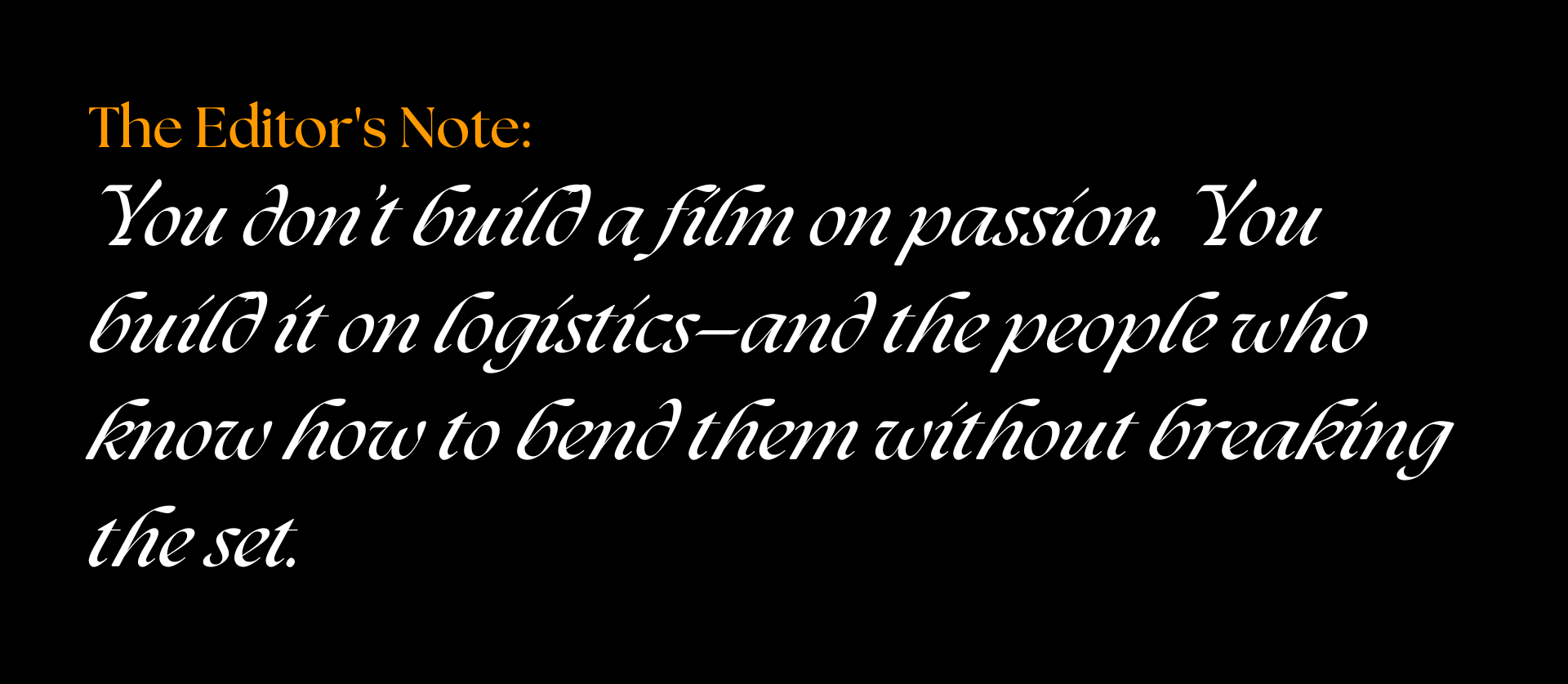The Invisible Backbone: Why Line Producers Matter

They’re the first ones to show up on set and the last to leave. They’re often the only people fully aware of how close a shoot came to falling apart. Yet, when the spotlight shines and the applause rolls in, their names are rarely mentioned.
The line producer isn’t the director. They don’t write the script. But without them, none of it gets made. In today’s industry, where time is tight, margins are thinner, and chaos is the default setting, line producers aren’t just managers. They’re co-authors of the outcome. And yet, somehow, they’re still treated like background staff.
That has to change.
What Line Producers Really Do
Let’s be clear: a line producer isn’t just someone who “handles operations.” That’s a résumé line. In reality, they are the ones:
- Translating the director’s vision into a real-world timeline that actually works.
- Keeping morale from collapsing when weather hits, actors ghost, or equipment fails.
- Balancing creative ambition against legal, financial, and physical risk every single day.
They don’t just make the schedule. They are the schedule.
Why the Job’s Only Getting Harder
The industry loves saying it’s “back to full swing,” but it’s a lot leaner, faster, and way less forgiving.
- While aesthetic expectations are climbing, budgets are shrinking
- Multi-city shoots have become the standard, not the exception, even on tight calendars.
- AI in post has compressed delivery windows, cutting prep time and buffer days.
- Crew burnout is real, and finding replacements on short notice is a blood sport.
- And yes, climate unpredictability is now a daily production variable.

Who Gets the Credit?
When a film wraps ahead of schedule, the director is called disciplined. When it runs late, the line producer is blamed.
When the vibe is smooth, the actors thank “the team.”
When something goes wrong? “Production fumbled.”
Let’s be honest:
Directors get retrospectives. Line producers get post-it notes.
And that’s not just disrespectful. It’s foolish.
Because without their planning, problem-solving, and fast thinking, most projects wouldn’t survive.
What Needs to Shift
1. Credit Must Be Structural
Line producers deserve more than a quick thank-you at the wrap party. They should be mentioned in press kits, on festival panels, and even in interviews. Let the public know who kept the whole thing running.
2. They’re Not Just Ops. They’re Creative Collateral
Great line producers don’t just “manage” the story; they shape what is possible. Many powerful scenes exist because a line producer figured out how to make them happen.
3. Budget Pressure Is Creative Pressure
Let’s stop calling it “emotional cost.” This is operational pressure disguised as professionalism. Tight timelines, high turnover, zero margin for human error, and sadly, that’s the actual context in which most films are being made.
4. Give Them the Room to Say ‘No’
They deserve a voice when the big decisions are made, not just the floor plan meeting. If you want to shoot 75 scenes in 23 days across 4 cities, let the line producer tell you exactly how much you’re gambling.

Why This Isn’t Just About Credit
The industry is evolving with fewer resources, smaller crews, and higher expectations. More regional cinema is leading the charge with tight, efficient teams. As creative ambition gets sharper, so does the need for better infrastructure.
And infrastructure, in film, has a name: the line producer.
They are not expendable. They’re not interchangeable. They are not assistants with better Excel skills.
They’re the ones who bring order to the chaos, keep the money in check, and make sure the vision gets to the screen.
So the next time a shoot survives disaster, a film avoids shutdown, or a debut feature lands on time and under budget, pause before you thank the universe.
Look at the bottom of the call sheet. That’s the name that deserves the mic.
Lets start by giving credit where it is due. You can start with this.

